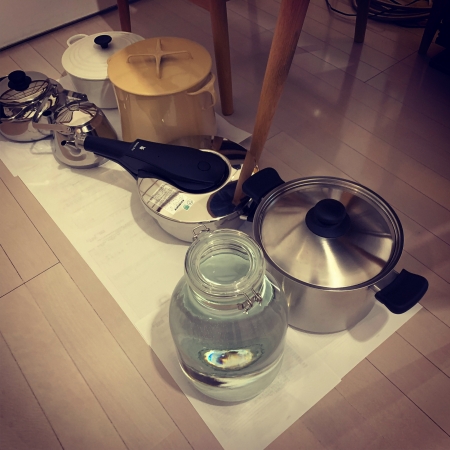心のシェルター
家はつくづく、シェルター、だと思う。
台風の対策を、ここまでしたのははじめて、全部の雨戸を、閉めたのもはじめて、3日前から、対策したのもはじめて。
今回は事前から、恐いくらいに、台風の影響を気にして、はじめて、停電した、断水した、その後どうするとして準備した。
今までは、何とかなる、だった。仮に、停電しても、断水しても、何とかる、何とかしてくれる、だった。
千葉の人たちが、大変な思いを、されているのもあるし、それを自分に、置き換えて、水と食料、いつも食べているものを、蓄えた。
で、最後は、家である。いくら、水と食料があっても、家が持たないと、何の意味も無い。
しかし、対策は限られる。簡単に言えば、窓をどうするかだけ、その他は、そもそもの家の、ポテンシャルの問題。
だから、頑丈に、つくりましょう、と言いたいのではなくて、この台風の機会に、余裕がない機会に、家は、シェルター、それも、心のシェルター、だとつくづく思う。
家のつくり、がどうのこうのでは無くて、家という囲われた安全地帯のありがたさ、中では、外とは、全く関係なしに、過ごせるありがたさ、それがある安心感、家がもし必要だとしたら、それが一番だと。
乱暴に言えば、家で行う機能は、全て、外で賄える。食べることも、寝ることも、その他のことも、全て、賄えないのが、安心感。安全地帯という、心の持ちよう。
それを、心底経験すると、家に対する想い、が変わる。
"Shelter of the heart"
I think the house is a shelter.
This is the first time I have taken countermeasures against a typhoon, the first time that all shutters have been closed, and the first three days before that.
This time, I was prepared for the first time because I was worried about the effects of the typhoon, and after a power outage, water cut off, and then what to do.
Until now, it was going to be somehow. Even if there was a power outage or water outage, it managed to manage it.
Some people in Chiba had a great feeling, replaced it with themselves, and stored water and food, what they always eat.
And the last is a house. No matter how much water and food you have, if you don't have a house, it has no meaning.
However, measures are limited. Simply put, what to do with the windows, the other is the potential problem of the house.
So, I don't want to say that I should make it sturdy, but I think that the house is a shelter, a heart shelter.
It's not like how a house is built, but the appreciation of the enclosed safety zone of the house, inside, thank you for being able to spend it without having anything to do with the outside, if there is a sense of security, if the house needs it, Is the best.
Roughly speaking, everything you do at home can be done outside. I can't afford to eat, sleep, or anything else. Let's have a safety zone.
If you experience it, your feelings for the house will change.

